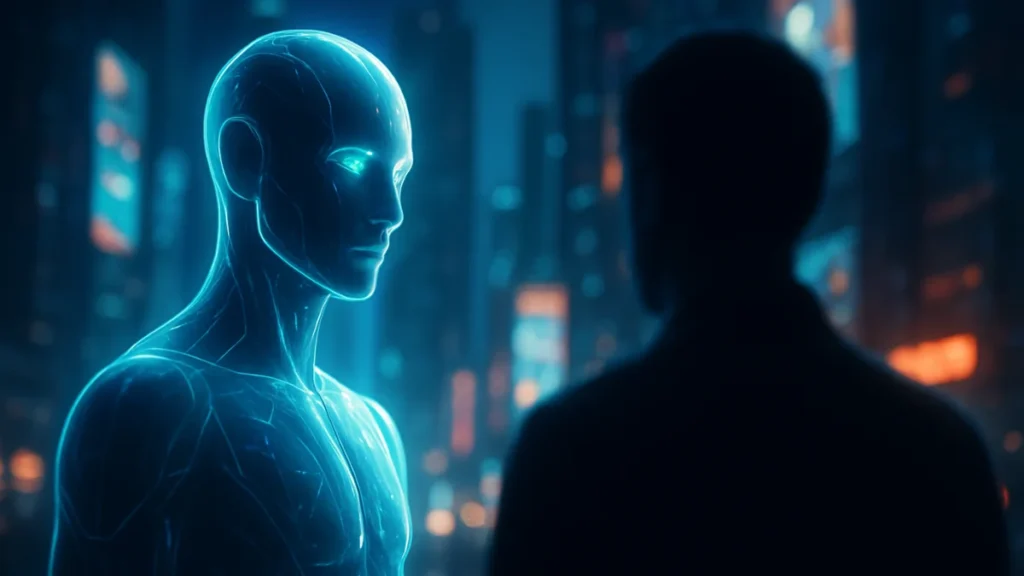Sam Altman just drew a line in the sand: superintelligent AI by 2030.
The OpenAI CEO believes machines will soon outpace us, but competitors like Elon Musk and Anthropic’s Dario Amodei insist the future is arriving far faster.
Key Takeaways
- Altman predicts AI will outthink humans by the end of this decade.
- Rival CEOs warn machines could surpass us as soon as 2027.
- OpenAI’s ChatGPT is already one of the world’s top five websites.
- Infrastructure limits remain the biggest barrier to faster progress.
- A Texas mega–data center aims to power AI’s next big leap.
Sam Altman predicts AI will surpass human intelligence by 2030, though rivals like Anthropic’s Dario Amodei and Elon Musk believe it will happen years earlier. Altman says rapid progress in models and massive new U.S. data centers could soon push AI beyond human capability in science, work, and decision-making.
Altman’s Bold Prediction
Sam Altman, CEO of OpenAI, believes the world is closing in on a once-unthinkable milestone: artificial intelligence that is smarter than people. Speaking with German newspaper Die Welt, he said he would be “very surprised” if machines had not surpassed human intelligence by 2030.
Altman added that OpenAI’s newest model already feels smarter than he is. “I can easily imagine a world where 30% to 40% of today’s economic tasks are handled by AI,” he noted.
Rivals Say the Future Is Even Closer
Altman’s timeline, however, is seen as conservative by his peers. Anthropic CEO Dario Amodei, who once worked at OpenAI, has said AI could outperform humans in “almost everything” by 2027. Elon Musk, founder of xAI, has gone even further, predicting AI will exceed the smartest human as early as 2026.
These competing forecasts highlight how fast the AI race is moving — and how uncertain the endgame really is.
Limits Holding AI Back
Despite the hype, Altman acknowledged AI’s current limits. Running models like ChatGPT requires enormous amounts of energy and computing power. “This site is just a small fraction of what we’re building,” he said at an event in Texas this week, referring to an 800-acre data center project built with Oracle and SoftBank.
The complex is part of the “Stargate” initiative, which aims to create the infrastructure needed for AI’s explosive growth. Even with five more centers planned across the U.S., Altman admitted demand for ChatGPT alone may still outstrip supply.
What Superintelligence Could Mean
Altman stressed that surpassing human intelligence isn’t just about automating work. He believes AI could unlock scientific breakthroughs that are currently out of reach for humans. “In another couple of years, it will become very plausible for AI to make discoveries humans cannot make on their own,” he said.
But he also cautioned that human needs and values won’t disappear. “We’ll have an incredible tool, but people will still care about what other humans think and want,” Altman told Die Welt.
Global Implications
The race toward superintelligence has geopolitical weight. As AI becomes central to economies and national security, whichever country builds the most advanced systems first could gain outsized influence.
Infrastructure is also an energy story. Data centers of the size OpenAI is planning consume as much electricity as small cities, raising environmental and regulatory questions. Policymakers worldwide are already debating how to rein in AI’s risks while capturing its benefits.
What Happens Next
The next three years may prove decisive. If Amodei and Musk are right, by 2027 the world could already be living with systems that outthink humans in nearly every domain. If Altman’s 2030 forecast holds, we may have just enough time to prepare for a slower, more managed transition.
Either way, the path forward is clear: massive investments in compute power, rapid scientific breakthroughs, and growing debate over how humanity coexists with a technology that could eclipse it.
Conclusion
Altman believes AI’s superintelligence is less than a decade away. Rivals say the clock is ticking even faster. Whether the tipping point comes in 2026 or 2030, one fact is undeniable: the race to build — and control — AI’s future is accelerating.
